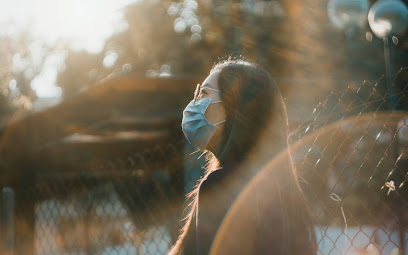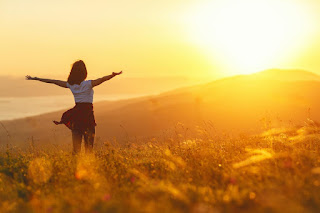Clarity, Even in Perpetuity
By: Rafael Enrique A. Besa
"Who am I?", "Is this real?" "Is all this worth it?"
These age-old, now almost cliché questions serve as the foundation for one's identity and the basis for all forms of life-long development whether it be directly or indirectly, unconsciously or not. Descartes has a method and a concrete anchor amongst the swirling uncertainties and variability of reality: one's existence is validated by his or her capacity to doubt. This doubt is both an acknowledgment of one's limitations, and understanding one's capabilities in spite of those shortcomings. Even today, almost 400 years since Descartes' time, we are faced by great uncertainty and many events that would have barely registered in our collective imaginations are assailing our very perceptions of reality and normalcy. COVID-19, quarantine, online classes, presidential races, conflicts on social media, domestic controversies; one can hardly find footing let alone comfort in these trying times. And yet, a glimmer of hope remains.
Gabriel Marcel once stated that "Reflection is never exercised on things that are not worth the trouble reflecting upon''. To many who have become cynical in these past few years after constant physical, mental and possibly even spiritual level, this only serves as yet another confirmation to belief that nothing ever really gets better, nothing ever really changes. After all the stress and mundanities of everyday life is difficult with all the responsibilities that are expected of us, what good is it to nurture thoughts that may likely only be self-destructive in intent and outcome? And yet such a conclusion has neither practical purpose and remains as only a surface level understanding of what Marcel meant. His writings examine our own personal experiences with reflection and how it helps the development of our individual identities: exactly how we perceive and accept (or not) ourselves. This reflection is a constant process in our lives that is almost never easy and yet, ultimately necessary for building persons worthy of striving to ever greater heights yet remaining grounded enough to genuinely care for others and do good for collective humanity.
On a more personal note, Descartes and Marcel's readings did much to broaden my understanding of how I see myself. From time to time, I question the path I walk and the actions I take, partly in a somewhat vain effort to gain clarity and partly to stave off the boredom and deafening silence of monotony. Now at 20 years old, in the midst of a quarantine and the end of an academic mindset that I have known through all my life so far, being within a few years' reach. Anxious and uncertain are weak words to describe my concerns as I face them everyday. Yet despite these contemplations and questions, I take solace in the fact that I don't regret all that has made me what I am today. It was never an easy process; going through various incidents and academic difficulties in my time here in Ateneo. Yet if the ultimate goal was to be a better person for others, I am content with the result despite the uncertainties that still lay before me. To doubt myself is an acknowledgment that I still have room to grow and do better. And I believe that was the lesson Descartes and Marcel wanted to teach.
Image source: https://forge.medium.com/3-reasons-to-be-hopeful-6c942ad8587b



Excellent reflection!
ReplyDeleteA
Delete